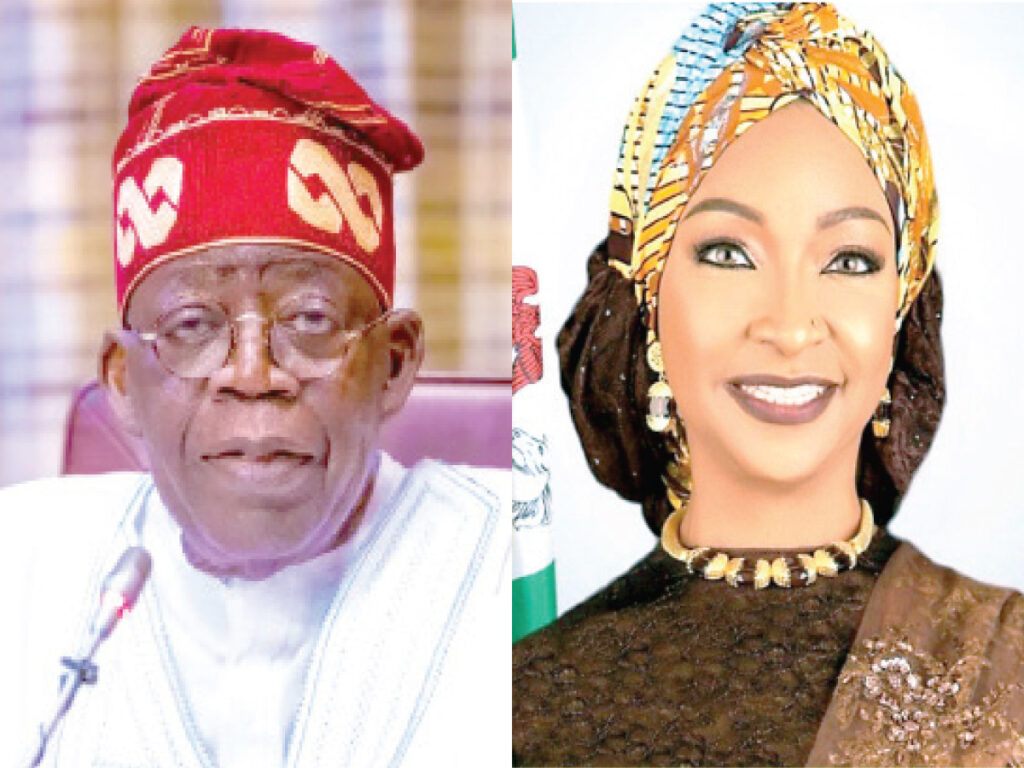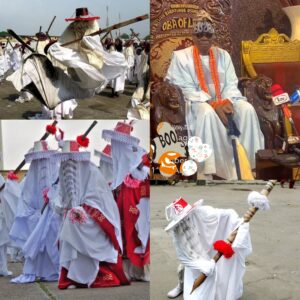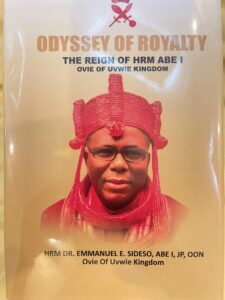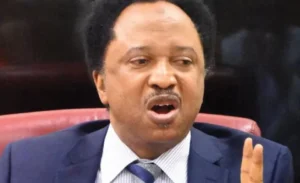Nigeria at 65: Tapping into the Abundant Global Tourism Market

President Tinubu, Minister of Culture and Tourism Hannatu
By Orobosa Omo-Ojo, JP
At 65, the world is watching Nigeria.
At 65, Nigeria has shown it can move global culture with its music and film.
From Afrobeats pulsing in London nightclubs to Nollywood films screened in New York cinemas, Lagos has extended its cultural frontiers far beyond Africa. Nigerian designers are redefining global runways; Nigerian writers are reshaping literature. In culture, Nigeria is not a fringe player—it is a giant.
The question now is whether Nigeria can achieve the same influence with tourism. The global tourism market is abundant, worth nearly $7.7 trillion annually and accounting for almost 10% of global jobs. Countries without Nigeria’s cultural or natural depth have carved out strong niches. Why then does Nigeria—with its rich tapestry of people, history, and landscapes—remain absent from the world’s top destinations?
This is the paradox Nigeria faces at 65: a cultural superpower, but a tourism underachiever.
A Land Painted in Colour and Story
On a humid morning in Kano, 62-year-old Mallam Musa squats beside one of the city’s ancient dye pits. His bare hands sink into the indigo water, pulling out a piece of cotton that will dry into the brilliant blue fabric worn by traders, brides, and festival dancers. He smiles faintly.
“Sometimes tourists stop here,” he says. “They are surprised this work has continued for hundreds of years. But not many know we exist.”
Musa’s quiet pride is Nigeria’s story: treasures that endure, but too often remain hidden.
Far south in Osogbo, dancer Folake Ajayi prepares for the annual Osun-Osogbo Festival. With her body painted in white chalk and beads strung across her waist, she joins hundreds of worshippers streaming into the sacred grove. “Foreigners come sometimes,” she says, her voice rising over the drumbeats. “They say it reminds them of India’s festivals. But if Nigeria promoted it better, thousands would be here every year.”
On the Niger Delta coast, fisherman Efe Omadeli paddles his canoe through mangrove creeks as the morning sun glitters on the water. His catch will feed his family, but he knows the environment itself is the true wealth. “People come to see these mangroves, the birds, the calm,” he says. “But there are no hotels, no boats for tourists. Only us fishermen.”
Meanwhile in Yankari Game Reserve, guide Bala Yusuf leads a small group of foreign tourists across the savannah. They watch elephants lumbering in the distance. Bala sighs: “If there were better roads, more visitors would come. The animals are here, the beauty is here, but the world doesn’t know.”
And in Benin City, bronze caster Osaretin hammers carefully on molten metal in his family workshop. The tradition has been passed down since before the 1897 British invasion. “Museums abroad display our work,” he says, “but tourists rarely come here to see us make it.”
From Kano’s dye pits to Osogbo’s festivals, from the Delta’s mangroves to Yankari’s elephants and Benin’s bronzes, Nigeria is a gallery of wonders—each region a canvas of culture, nature, and memory. Yet, the country has not translated this wealth into a structured, globally competitive tourism industry.
Africa’s Sleeping Giant
Tourism is not just about leisure—it is about identity, memory-making, and soft power. Countries have understood this, and they are cashing in.
South Africa has made safaris a global brand, pulling in over $9 billion annually.
Morocco attracts more than 12 million tourists each year with its medinas, desert tours, and coastal cities.
Rwanda, once synonymous with tragedy, rebranded itself as a sanctuary of peace and gorilla trekking.
Seychelles, with a population smaller than a Lagos neighbourhood, earns more from tourism than Nigeria.
Nigeria, with its 250 ethnic groups, hundreds of languages, and extraordinary heritage, should rival or surpass these examples. Instead, most of its arrivals are business travelers who never venture beyond hotel boardrooms.
Why Has Nigeria Missed the Train?
The reasons are familiar but stubborn:
Poor Infrastructure: Roads that should take hours stretch into days. Airports lack seamless connectivity. Basic facilities are missing.
Insecurity: Even breathtaking landscapes cannot be enjoyed under the shadow of fear.
Weak Marketing: Few abroad know of Nigeria’s Nok Terracotta, Erin-Ijesha waterfalls, or the Obudu Mountain Resort.
Policy Gaps: High airfares, complicated visas, and limited direct flights make Nigeria less attractive than Ghana, Kenya, or Senegal.
The result: a “sleeping giant” watching smaller nations thrive in markets it should naturally dominate.
Culture as Currency
Tourism begins with story. And Nigeria already tells some of the world’s most compelling stories. Afrobeats dominates playlists. Nollywood churns out films consumed globally. Nigerian designers shape runways in Paris and Milan. Writers like Chimamanda Ngozi Adichie and Wole Soyinka ensure Nigeria remains on bookshelves worldwide.
This cultural capital can be converted into tourism gold. Imagine Afrobeats fans flying to Lagos for an annual music festival. Picture Nollywood-themed tours where visitors attend premieres or visit film locations. Envision the Kano Durbar packaged as Africa’s Rio Carnival; the Osun-Osogbo Festival as West Africa’s Holi; Lagos Fashion Week as “Africa’s Paris.”
The opportunities extend to heritage tourism. From the Emir palaces of the North to the Nok Terracotta sites and Yoruba spiritual trails, Nigeria could attract millions of pilgrims and history lovers if it branded itself effectively.
Take Amarachi, a young tour operator in Lagos. For years she has guided small groups of Europeans and Americans. “They’re blown away,” she says. “But the hard part is getting them here—flights are costly, visas are stressful, and Nigeria doesn’t advertise itself. Once they come, they fall in love. But most people never hear about us.”
The Path Forward
For Nigeria to claim its rightful share of the global market, urgent steps are required:
– Security First: Secure tourist corridors—no one travels where they feel unsafe.
– Visa Reforms: Introduce e-visas and visa-on-arrival, following Rwanda’s example.
– Infrastructure: Upgrade airports, roads, hotels, and digital networks in key hubs.
– Branding: Launch global campaigns that showcase Nigeria’s heritage, festivals, music, and creativity.
– Public-Private Partnerships: Incentivize resorts, eco-lodges, and museums that meet international standards.
– Community Tourism: Ensure local custodians like Musa, Folake, Efe, Bala, and Osaretin are beneficiaries—not bystanders—of tourism.
A Defining Moment
At 65, Nigeria faces a choice. It can continue to watch others dominate an industry tailored for its strengths, or it can boldly step onto the global stage. Tourism is not only about revenue—it is about perception. It is about rewriting narratives, replacing headlines of crisis with stories of creativity, resilience, and beauty.
For a nation eager to diversify beyond oil, tourism offers both economic relief and soft power. It is Nigeria’s chance to invite the world not just to hear its music or watch its films, but to walk its lands, touch its heritage, and live its stories.
As Mallam Musa dips his hands once more into Kano’s indigo pits, he says softly:
“The world does not know us yet. But one day, maybe they will.”
The global tourism market is expanding. Nations that act now will reap the rewards. At 65, Nigeria must decide: remain a sleeping giant—or awaken to its abundant possibilities.









